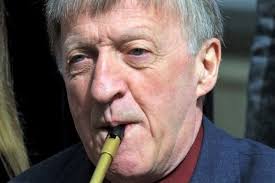Feast of the Transfiguration
“This is my beloved Son … listen to him.”
Throughout Sacred Scripture, astonishing things happen on mountains.
When the Bible says that someone is going “up a mountain,” it’s time to fasten your seatbelts. Right away you know something completely out of the ordinary, something very special, something uniquely sacred is about to take place.
And that’s precisely what happens in today’s gospel reading.
Up until this moment in the gospels of Matthew, Mark and Luke, Jesus is presented as someone who is exceptional, even remarkable. But he is also shown to be human – a man who has amazed people with his miracles and his teachings, but who is still in many ways just like you and me.
But then, out of nowhere, we are told that when Jesus reached the top of the mountain with Peter, John and James, “his face shone like the sun and his clothes became white as light.”
And we know now, suddenly, that we have left the humdrum ordinary and entered an experience that can only be described as “transcendent.”
We have entered the realm of the “Holy.”
On the mountaintop, we are introduced to two of the most renowned of all Old Testament heroes: Moses and Elijah. And before this moment, Jesus’ disciples had treated him like he was the equal of these great prophets of the ages.
But then a cloud comes over the disciples and a “voice” from the cloud says: “This is my beloved Son … listen to him.”
What the disciples – and you and I – are being clearly told is that Jesus is more than a prophet, more than a wonder worker, more than any other holy person who ever existed – more even than Moses and Elijah.
Jesus, we are told by this “voice,” is unique in all human history, transcending all those who have gone before. He alone is God’s Son!
Then, out of the cloud, comes the only directive that the “voice” from heaven gives. Notice that it is not “worship him.” It is not “adore him.” It is not even “praise him.” Instead, it is a much more intimate, caring command:
“Listen … to him.”
Follow him.
Allow the experience to transform our hearts, to bring about a Spirit transplant.
This “voice” from the heavens isn’t just informing us that Jesus is God’s Son to give us information. The “voice” is encouraging us to understand and live out the message that we are all God’s sons and daughters, that despite some terrible sorrows and considerable pain that we may have to endure, we can now trust that in the end all will be well.
The description of this whole experience reminds me of a late 1970’s hit movie: Close Encounters of the Third Kind.
In it, Richard Dreyfus plays an everyday American man who becomes strangely attracted to an isolated area in the Wyoming wilderness. He is convinced that something spectacular is about to happen there. And in the last 30 minutes of the movie, something truly stupendous does: a giant spaceship begins to hover over this region.
People witnessing it are dumbstruck – and terrified, like the disciples in today’s gospel story.
Who’s in the spaceship? Are they beings that have come to destroy us? What will happen to us?
Then the spaceship door opens.
And some unique figures emerge – figures filled with light – figures that emanate benevolence and kindness.
Dreyfus is “transfigured” by this experience. He is so captivated by it, in fact, that he abandons everything he’s certain of for something he knows nothing about.
He runs to the light.
That is the kind of response the heavenly “voice” is calling us to when we hear in today’s gospel that “This is my beloved Son … listen to him.”
Listen.
And then follow – into the Light.
Ted Wolgamot, Psy.D.
NOTE: As promised, here is another series of quotes concerning Pope Francis from the book Wounded Shepherd: Pope Francis and His Struggle to Convert the Catholic Church, by Austen Ivereigh.
Pope Francis believes that we humans “are in a struggle between two obstinate forces: God’s mercy versus human stinginess.” A person can only be truly free “by overcoming self-affirmation and allowing himself to be overcome by God, something he cannot do alone but through the mediation of the Creator, a mediation that is in turn only possible by means of the believer’s true assent …. Why do people resist? The human illusion that what we have, we have earned; and because what we think we deserve to keep, we fear to lose. Yet all we are and have is pure gift, to which the only reasonable response must be a joyful surrender in gratitude, expressed in service to others, in obedience to the source of our good.
The call to serve would always jostle with the urge to take.
Corruption is a daily temptation …. Wherever there was corruption, it was always the same: the corrupters always profited from those who had the least.
Francis polarized the choices facing clergy in the same way, mocking the ‘peacock-priest’ and the ‘priest entrepreneur’ as pitiful figures, ‘devotees of the god Narcissus.’ Such self-focus is a downward spiral, at the bottom which was corruption. “We might start with a small bribe, but it’s like a drug,” Francis warned. Like an Old Testament prophet, he poured scorn on those who thought of themselves as good Catholics but cared only for money. “We don’t need dirty money, only hearts that are open to God’s mercy.”



